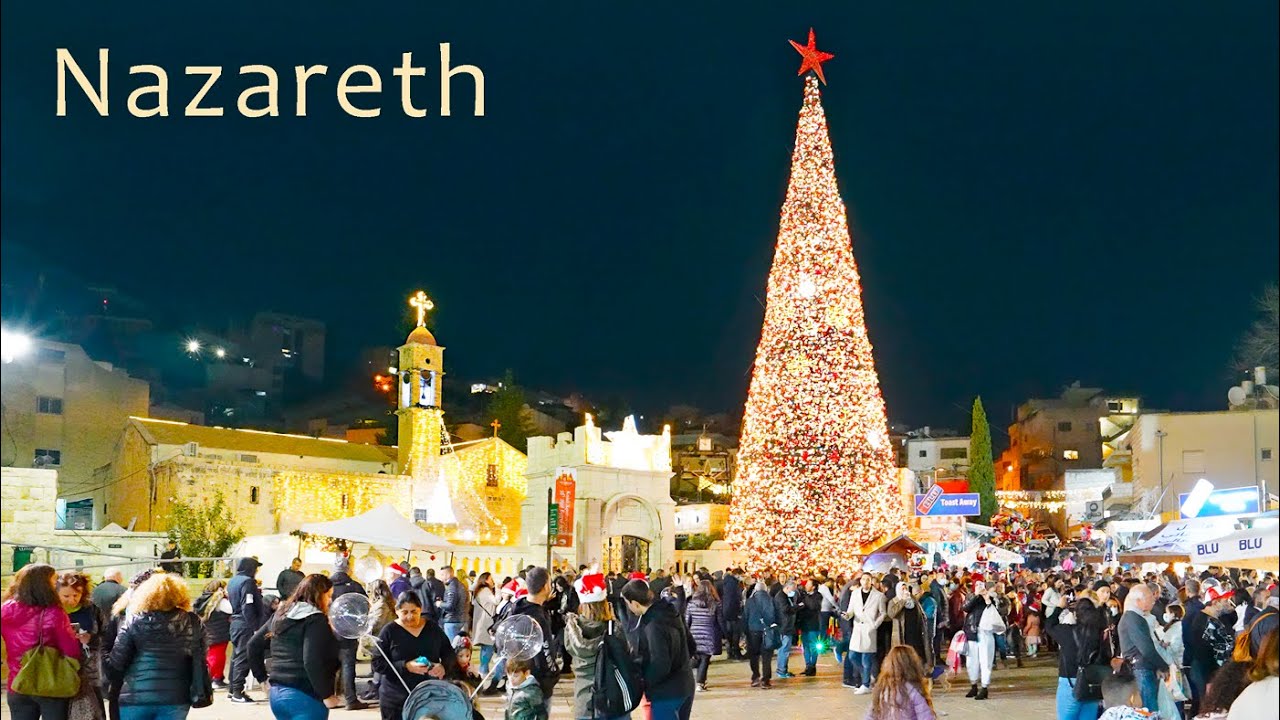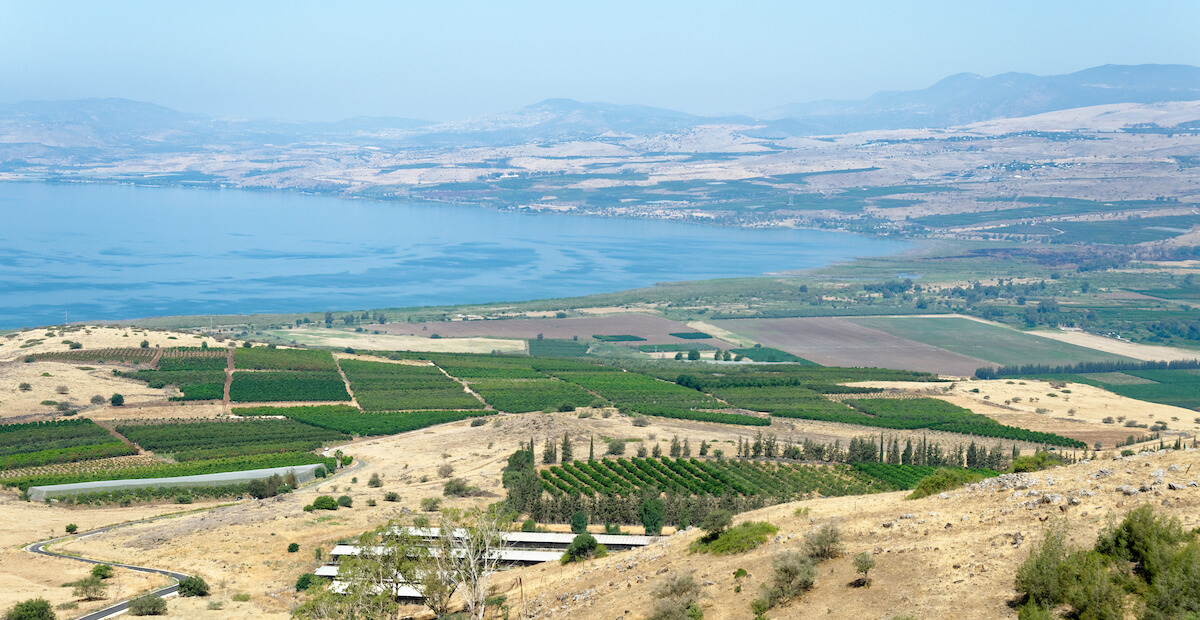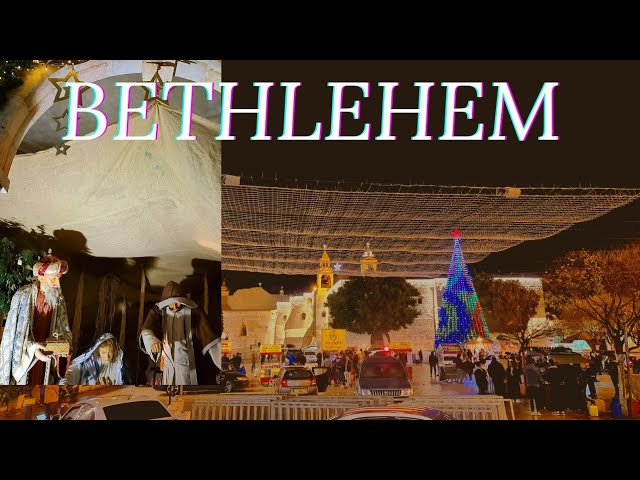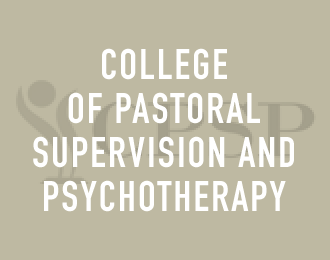A Christmas to celebrate the life of Jesus of Nazareth
Esteban Montilla | 17 diciembre, 2024
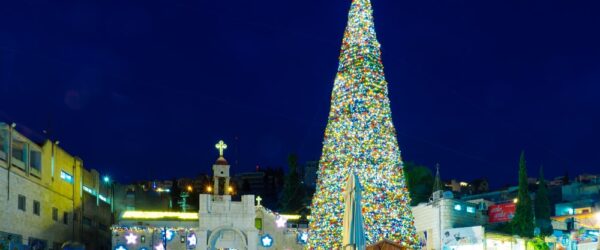
Christmas (Cristes, Cristemasse) is a feast on which we celebrate the birth of Jesus of Nazareth. He was an Israelite and a dissident Jew, a human being of the margins both of his Galilean origin, the circumstances of his birth, and the teachings he shared with the people who followed him in his ministry. He lived in a historical moment when the dream of creating one of these nations (Galilee, Samaria, and Judea) had not yet been realized.
Social and economic life was challenging because many of their political and religious leaders placed their personal interests and ideological agendas above the welfare of the people of these two countries. These nations were under the rule of the Roman Empire led at that time by Emperor Tiberius (42 B.C.-37 A.D.), to whom reported the Governor of Galilee named Antipas (c. 20 B.C.-39 A.D., also known as Herod Antipas son of Herod the Great) and the Governor of Judea known as Pontius Pilate who ruled that region between 26-37 A.D.
In addition to directing the judicial system and overseeing tax collection, this governor of Judea also had religious power. He determined who the high priest was and set the agenda for the Jewish religious board called the Sanhedrin.
Joseph ben Caiaphas, better known as Caiaphas (c. 14 B.C.-A.D. 46), was the high priest who guided the business of the only temple that the Jews had at that time as religious leaders of southern or Judea some three centuries earlier had managed to exterminate any other place of worship that existed in Samaria and Galilee. Governor Pontius seems to have worked very well with the high priest Caiaphas, who was faithful to him and remained in that position until the end of his rule (36 A.D.).
Spiritual leaders did not believe in non-religious education, were suspicious of health professionals, showed traits of corruption, used extortion in the pursuit of their business, promoted the commercialization of faith, and offered an inflexible interpretation of the Hebrew Bible (Johannes Leipoldt and Walter Grundmann, 1973). In addition, social institutions such as the family were understood in terms of slavery, the temple as an economic opportunity, and the judicial system was highly biased towards the groups in power (Bruce Malina, 1995).
Jesus of Nazareth arrived in that world in the marginalized northern region known as Galilee, where even his countrymen doubted that anything good could come from there. “From Nazareth! — Nathanael replied, can anything good come from there? –Come and see, answered Philip. Aren’t you also from Galilee? They protested, Investigate, and you will see that no prophet has ever come out of Galilee” (John 1:46, 7:52. NIV). This shadow of suspicion and rejection attitude accompanied him from about 4 B.C. until his death in about A.D. 30.
Thus, in addition to facing barriers due to his ethnic features and his condition as a mamzer (son of an unknown father, bastard son, son of fornication, son of sexual violation), he also faced the challenge from the leaders who saw him as a threat to the status quo or to the religious and economic project they had established. In the Torah or Pentateuch, it was pointed out that a person like Jesus of Nazareth could not enter the congregation of Yahweh: “No one born of an illegitimate union may enter the assembly of the Lord; neither may any of his descendants, even to the tenth generation” (Deuteronomy 23:2, NIV). Jesus’ rivals insinuated that he was born of rape or fornication. “Unlike you, we are not illegitimate children or bastards, they said to him” (John 8:41).
Several languages were spoken in that culture, including Aramaic, Greek, Hebrew, Latin, and Nabataean. This multilingual condition of the society could be seen in the mocking inscription placed on the cross where Jesus of Nazareth was crucified. Many of the Jews read it because the place where Jesus was crucified was near the city. The sign was written in Aramaic, Latin, and Greek (John 19:20, NIV). His broad background probably came from his father’s work as a carpenter and builder or from the proximity to the capital city of Galilee called Sepphoris (a city built under Greco-Roman culture), which was just 6 kilometers from Nazareth (Jesus’ hometown, hence he was known as Jesus of Nazareth) and enjoyed prosperity with schools, gymnasiums, theaters, avenues, enviable architecture, and a much sought-after commercial center.
The internal evidence in the Christian texts indicates that Jesus could read, write, speak several languages, and be well-versed in various disciplines of knowledge (Luke 4:16; John 8:6, 8). “Where did this man get such wisdom and such miraculous powers? -Is he not the carpenter’s son? Is not his mother’s name Mary, and are not his brothers James, Joseph, Simon, and Judas? Are not all his sisters with us? So where did he get all these things? And they were offended because of him. But Jesus said to them, ‘Everywhere a prophet is honored except in his country and in his house’” (Matthew 13:54-57, NIV).
Jesus resorts to the Hebrew apocalyptic literature written between 165 BC—50 B.C., such as the Book of Daniel, the Book of Enoch, the Book of Adam and Eve, the Book of Jubilees, the Book of the Ascension of Moses, among others, in order to reinterpret the teachings of the Torah (Pentateuch), the Prophets and the Writings (TaNaK). These apocalyptic writings constitute the basis of the teachings of Jesus of Nazareth and the root of Christian theology (Blanco, 2013).

The authors of the Christian writings or New Testament made use of these apocalyptic dissident books but decided to propose that this new Christian faith was rather based on the Hebrew Bible. This is why they tried to identify some texts of these Hebrew sacred scriptures in order to give credibility to this new religious project.
This new religious proposal, the kingdom of Heaven or the kingdom of God, had as its starting point to lead a personal, social, political, commercial, and religious life based on the principles of justice and love. “But seek ye first the kingdom of God and his righteousness, and all these things shall be added unto you” (Matthew 6:33, KJV60). For Jesus of Nazareth, the Torah could be summed up as loving God and loving one’s neighbor. “Jesus said to him, ‘Love the Lord your God with all your heart, with all your soul, and with all your mind. This is the most important and the first of the commandments. But there is a second, similar to this; it says, ‘Love your neighbor as yourself.'” On these two commandments are based all the law and the prophets” (Matthew 22:37-40, DHH).
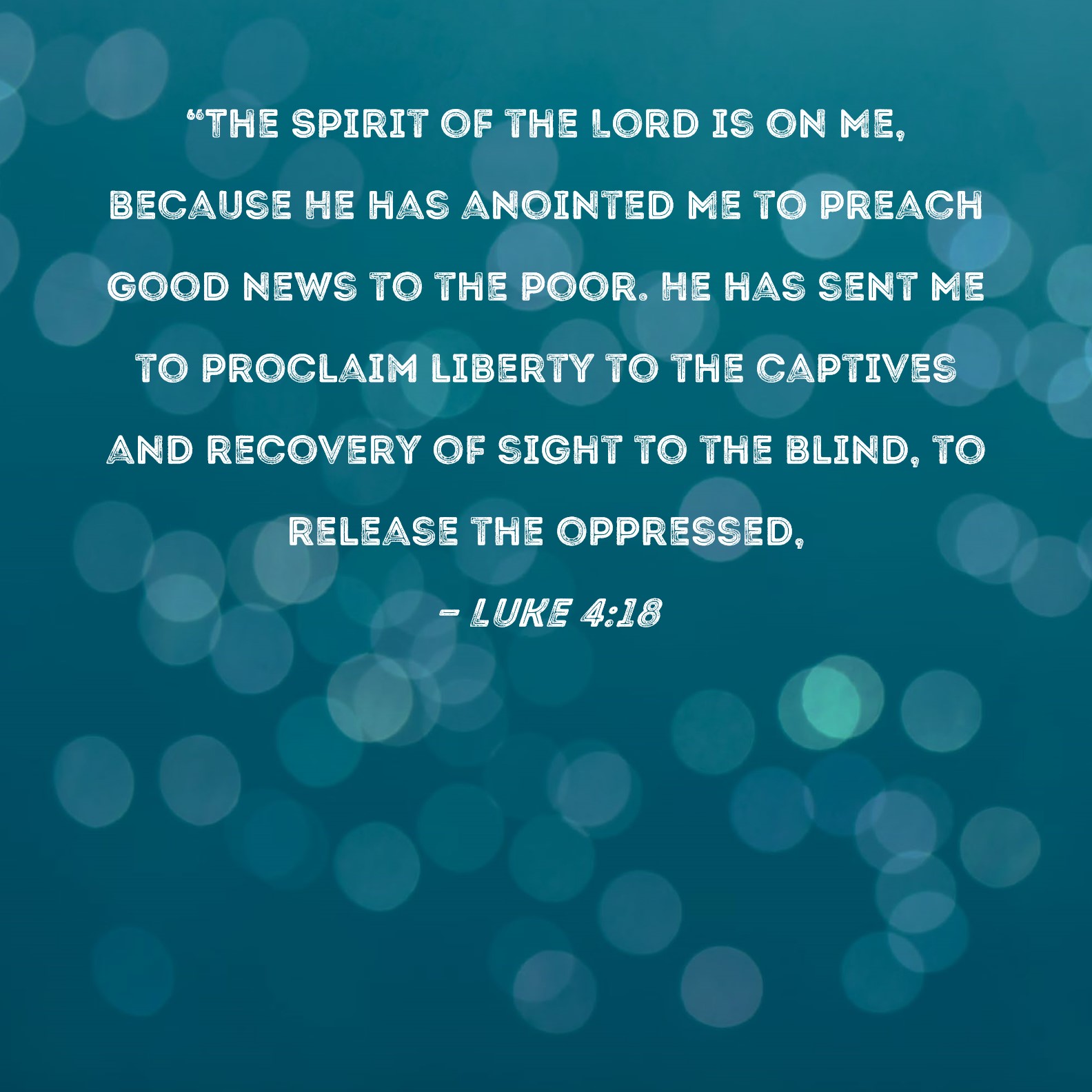
Jesus of Nazareth interpreted his coming as an opportunity to promote human freedom. At the beginning of his ministry, he echoed the words of the Prophet Isaiah, saying, “The Spirit of the Lord is upon me because he has consecrated me to bring good news to the poor; he has sent me to proclaim liberty to the prisoners and to give sight to the blind; to set at liberty those who are oppressed; to proclaim the acceptable year of the Lord… This very day the scripture you have just heard has been fulfilled” (Luke 4:18, 19, 21, DHH).
“Announce freedom to prisoners” was a pertinent statement, as it was easy at that time to imprison a person even for very trivial things, such as contradicting a leader, claiming a right, or simply thinking differently from the person in power. The prisons were material, but the strongest were the intellectual ones, where people were expected not to be exposed to other knowledge except what the leaders indicated.
In addition, most (about 90%) of the people did not know how to read or write; therefore, they depended on what other people could teach them (Keith, 2009). The religious and political authorities of that region known today as Israel seemed to benefit from the fact that their people did not seek knowledge of history, zoology, botany, mathematics, rhetoric, astronomy, and medicine. This was one of the reasons why superstitions, conspiracy theories and a very magical view of life abounded.
To “give sight to the blind and set at liberty those who are oppressed” implies exposing people to different ways of understanding human beings, understanding relationships with fellow countrymen and foreigners, dealing with politics, carrying out the economy, and living religion. Jesus of Nazareth called this model of life “the kingdom of God” and proposed that it was necessary to be born again or born from above, “Truly I tell you, unless one is born again, he cannot see the kingdom of God” (John 3:3, DHH). This being born from above referred to embracing a theoretical framework, a system of values or priorities, a way of living, a way of relating and practicing religion based on the principles of justice and love.
Celebrating the life of Jesus of Nazareth aims to remember his teachings, to appreciate his invitation to live according to justice, love, and humility, as well as to renounce a way of relating based on domination, to put aside the haughtiness that drives us to seek connection with other people based on advantage and to resist the temptation to believe ourselves superior to other people. Celebrating the coming of Jesus of Nazareth also implies being ready to respect the human rights of others, to care for God’s entire creation, and to live with hope in the certainty that in this journey, we enjoy the presence and company of the Eternal One.
This Christmas, we can remember the birth and coming of Jesus of Nazareth to this world with a sense of hope, as it is possible to begin to “live the kingdom of God” while we are here on Earth. “Go and proclaim that the kingdom of heaven is at hand… heal the sick who are there, and say to them, ‘The kingdom of God is at hand” (Matthew 10:7, Luke 10:9, DHH). This Christmas celebration is an opportunity to reaffirm our commitment to imitate his character, his willingness to proclaim freedom, his determination to continue his project to create a better humanity even amid so many challenges, and his courage to confront institutions characterized by evil and corruption. May this desire to think, feel, aspire, and act like Jesus of Nazareth be born in us.
This Christmas, let us strive to make the prayer of the Apostle Paul a reality by living a life grounded in the love of God. “I ask the Father out of his glorious riches to give you inwardly power and strength through the Spirit of God that Christ may live in your hearts by faith, and that love may be the root and foundation of your lives. And may you thus be able to understand with all holy people how wide, long, high, and deep is the love of Christ. I pray then that you may know this love, which is greater than all we can know so that you may be filled with the fullness of God” (Ephesians 3:16-19, DHH).
References:
Bruce J. Malina (1995). El mundo del Nuevo Testamento. Perspectivas desde la antropología cultural. Navarra, España: Editorial Verbo Divino.
Carlos Blanco (2013). El pensamiento de la apocalíptica judía. Ensayo filosófico-teológico. Madrid, España: Editorial Trotta.
Chris Keith (2009). The Pericope Adulterae, the Gospel of John, and the Literacy of Jesus. Leiden, The Netherlands: Koninklijke Brill NV.
Johannes Leipoldt y Walter Grundmann (1973). El mundo del Nuevo Testamento. Madrid, España: Ediciones Cristiandad.


